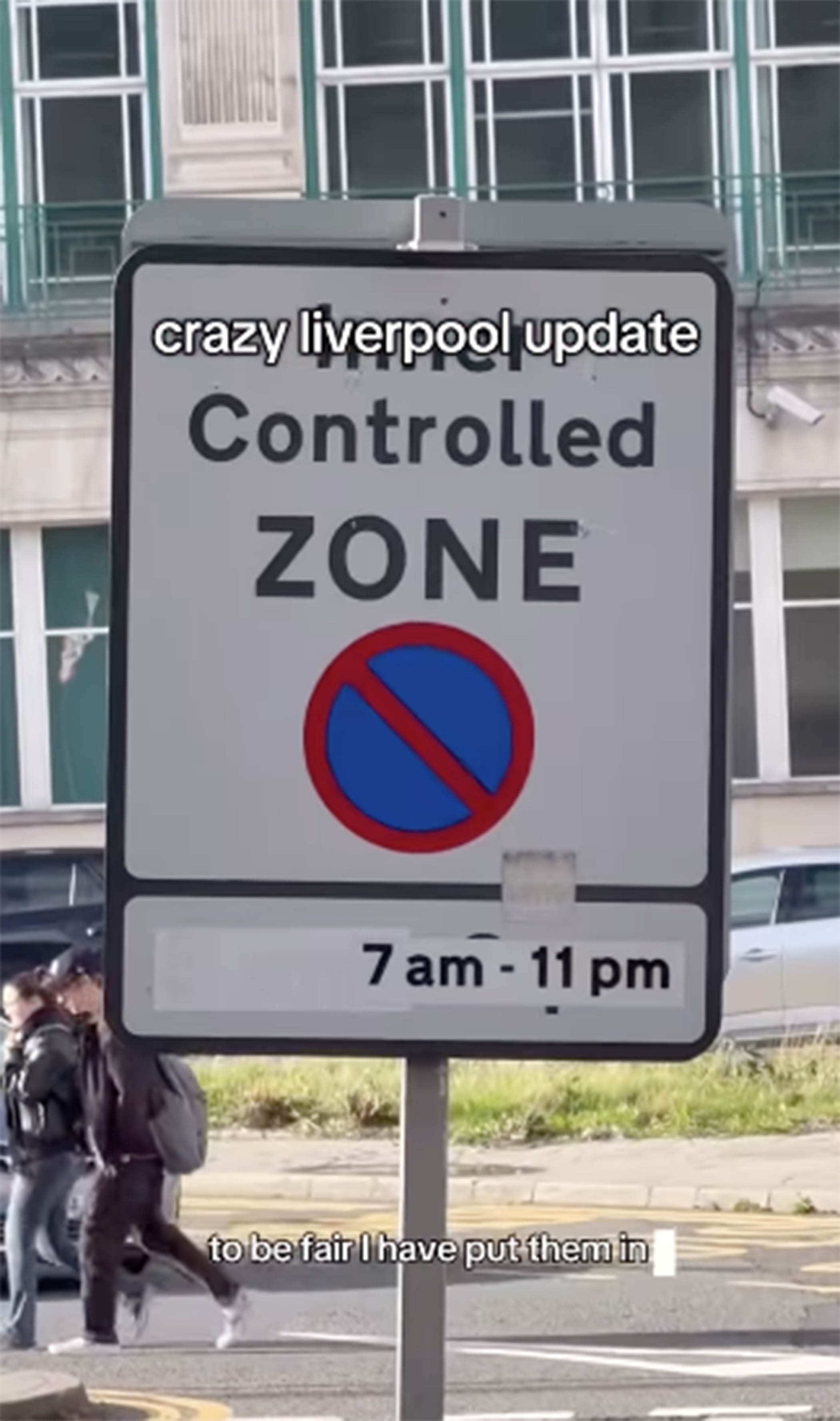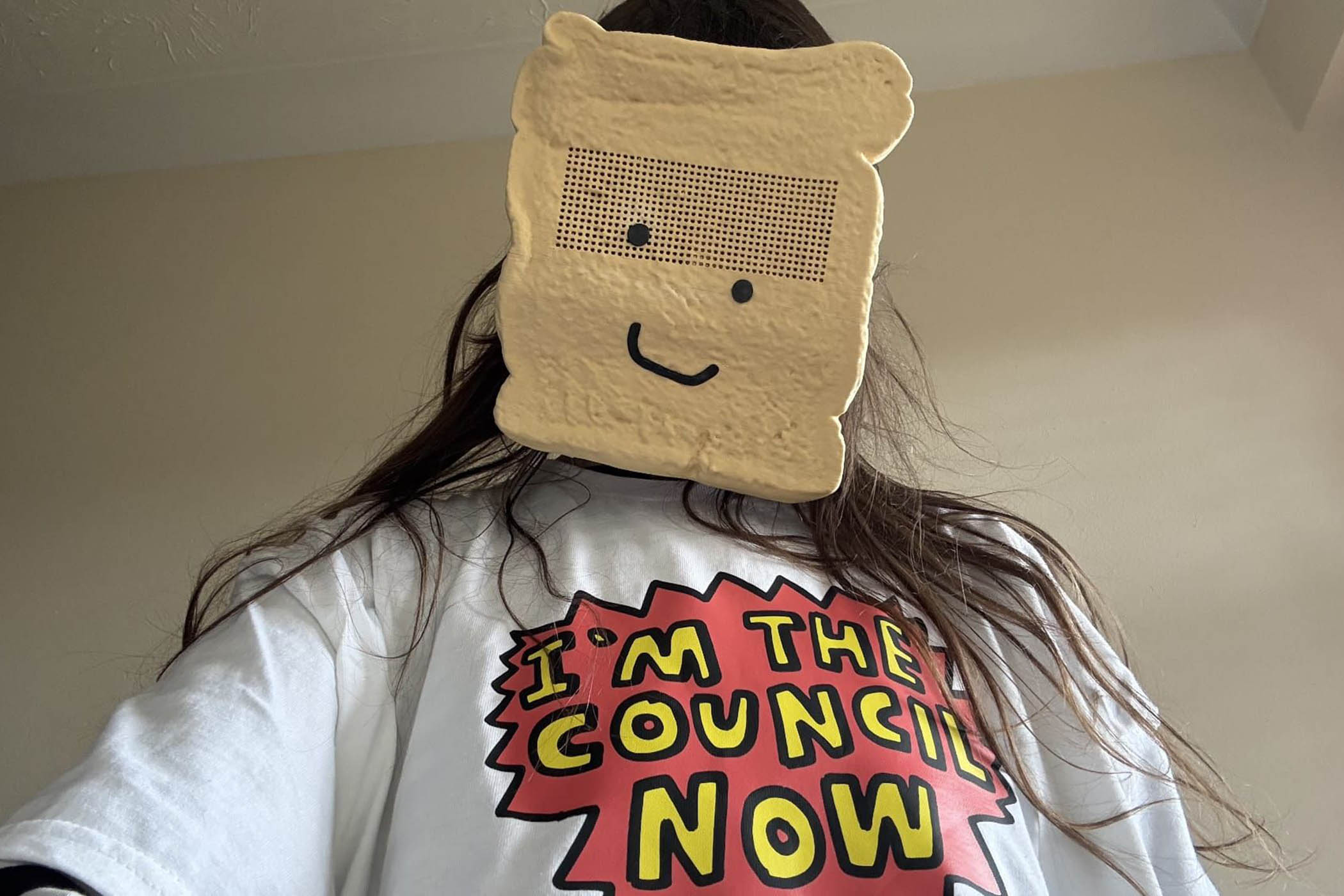It was at 9.28pm on 12 August that Liverpool city council inadvertently declared war. Zoë Bread, a TikTok creator with more than 1.4 million followers and a knack for running rings around public bodies, had parked in her normal spot on Bixteth Street in the city.
She believed parking was free after 6pm, only to return from dinner to find she had been given a ticket and a £25 fine. “Then I told my friend I would destroy Liverpool city council,” she said.
The pseudonymous campaigner, who disguises her face with a piece of bread and has reached a wide audience with comedic and often pointed observations about local life in Britain, made a video. Then she made more. It became a crusade that evolved into a 10-part saga involving hours of appeals, phone calls and freedom of information (FoI) requests.
What is at issue is whether Bread should have known that the rules had changed in July. Should she have realised that parking was no longer free after 6pm?
Bread’s position is that while the parking times had been updated on payment machines, they had not been changed on other signs.
It seemed, initially, that Liverpool council was willing to concede this point. It rescinded the fine after Bread filmed signage in the centre where the old hours were on display.
But when Bread publicly argued that this should lead to thousands of other people having their evening penalties cancelled, the council told the BBC the decision to quash the fine was a mistake and did not set a precedent. Bread responded with another video to make clear that she disagrees and that the battle was not over.
This back-and-forth might sound parochial, even as it plays out to a huge online audience. But it is a snapshot of a national landscape where parking has become a lucrative source of revenue for cash-strapped local authorities, and where many drivers feel robbed by a system of fees and fines that is increasingly expensive and complicated.

English councils made a record £2.3bn in income from parking in the 2024-25 financial year. This includes £1.2bn as surplus, or profit. Both income and surpluses have increased by roughly 20% in two years.
This flow of money is unevenly distributed. Three London councils accounted for 12% of parking income last year. The capital brought in nearly as much cash as the rest of England combined. Other standout earners include Brighton and Hove, Nottingham and Manchester, which together made a combined parking surplus of £72m.
Newsletters
Choose the newsletters you want to receive
View more
For information about how The Observer protects your data, read our Privacy Policy
“Parking fees and charges are one of the easiest levers that a local authority can lean on to create additional cash,” said Jack Cousens of motoring organisation the AA.
Council parking income is ringfenced by law to be spent on running parking services, with anything extra to be allocated to local transport or for environmental improvements. In recent years, Brighton has used its large surplus to subsidise bus passes for elderly people and bus routes that would otherwise make losses.
But even though the revenue cannot be moved to fill other budget holes, spending on transport can free up money elsewhere. Despite its size, Liverpool is ranked only ninth outside London for parking incomes and 20th for surpluses, and appears to have seen an opportunity.
A city council spokesperson said its new rules, which have extended paid parking hours in the centre to end at 11pm instead of 6pm, aim to “reduce congestion and improve road safety”. But when the council agreed to the rules, it said it expected to bring in nearly £240,000 until behaviour changes.
This may be an underestimate. FoI data requested by Bread shows the council issued 7,429 penalty charge notices across the city for evening parking between 1 August and 14 October. Even if these were all lower offences paid promptly at £25, Liverpool generated more than £185,000 in 80 days.
The amount of money that councils can make from parking, and their need to carefully manage it, reflects a growing population of drivers. The Local Government Association, the membership body for local authorities, says there are 10m more vehicles on roads now than 25 years ago.
“Councils take their responsibility to help ensure sufficient parking provision and enforce against those who park illegally very seriously,” a spokesperson said.
There are also sound arguments for treating parking as a way to bring car use down. Many Britons want their urban areas to be cleaner and more pedestrian-friendly. Liverpool council, which controls more than a quarter of parking across the city, said its new rules will “enhance air quality and promote sustainable travel”.
But it imposed the changes despite widespread opposition. A statutory consultation found that nearly 90% of people asked were against the proposals.
David Dutton, a musician who plays in Liverpool bars, says paid evening parking has been a disaster for the night-time economy.
“We’re paying double for parking,” Dutton said. He needs to drive into the city centre so he can bring two guitars, an amp and a pedal board with him.
“Not only that, but you can’t park for more than four hours. So we’ve got to park, then run out to try and move the car to another place to park again.”
Dutton says he has lost several nights of work because bars have been forced to slash hours for live acts. “Especially in the week, the footfall has gone to virtually nothing in some of our bars,” he said. “They had perfect working conditions for all the musicians in Liverpool. Basically, the parking rules have killed it off.”
A council spokesperson said the night-time economy had “placed significant pressure on parking availability”, but confirmed to The Observer that its officers had been asked to review options to support evening workers travelling to and from work.
UK councils are heavily dependent on central government for funding because they do not set council tax rates, and have few options to raise further funds. They have accumulated debts of £122bn because of increased demand for services and years of underfunding.
Parking charges are therefore generating much-needed revenue. But without good transport alternatives, these charges can harm urban areas and, when it comes to overzealous debt collection, the trust that people have in local government.
‘I don’t know my next move, but this is not over until the parking warden sings’
‘I don’t know my next move, but this is not over until the parking warden sings’
Zoë Bread, social media creator
It is not clear how much councils spend on bailiffs to chase down unpaid parking fines, but the scale of their deployment can be extrapolated from analysis of information requests with the UK Driver and Vehicle Licensing Agency (DVLA) to get data about a car after a violation.
The number made to the DVLA on behalf of public bodies rose from 4.4m to 5.2m between 2023 and 2024, an increase of 18%. In the first half of this year alone, there have been 3.8m requests.
Bread was not visited by a bailiff but says the possibility was mentioned on the parking appeals helpline as a consequence of not paying her fine. Her battle with Liverpool city council continues as she fights for other drivers to have their tickets overturned.
“I don’t even know my next move,” she said. “But it’s not over until the parking warden sings.”
Photographs by Zoë Bread/TikTok



